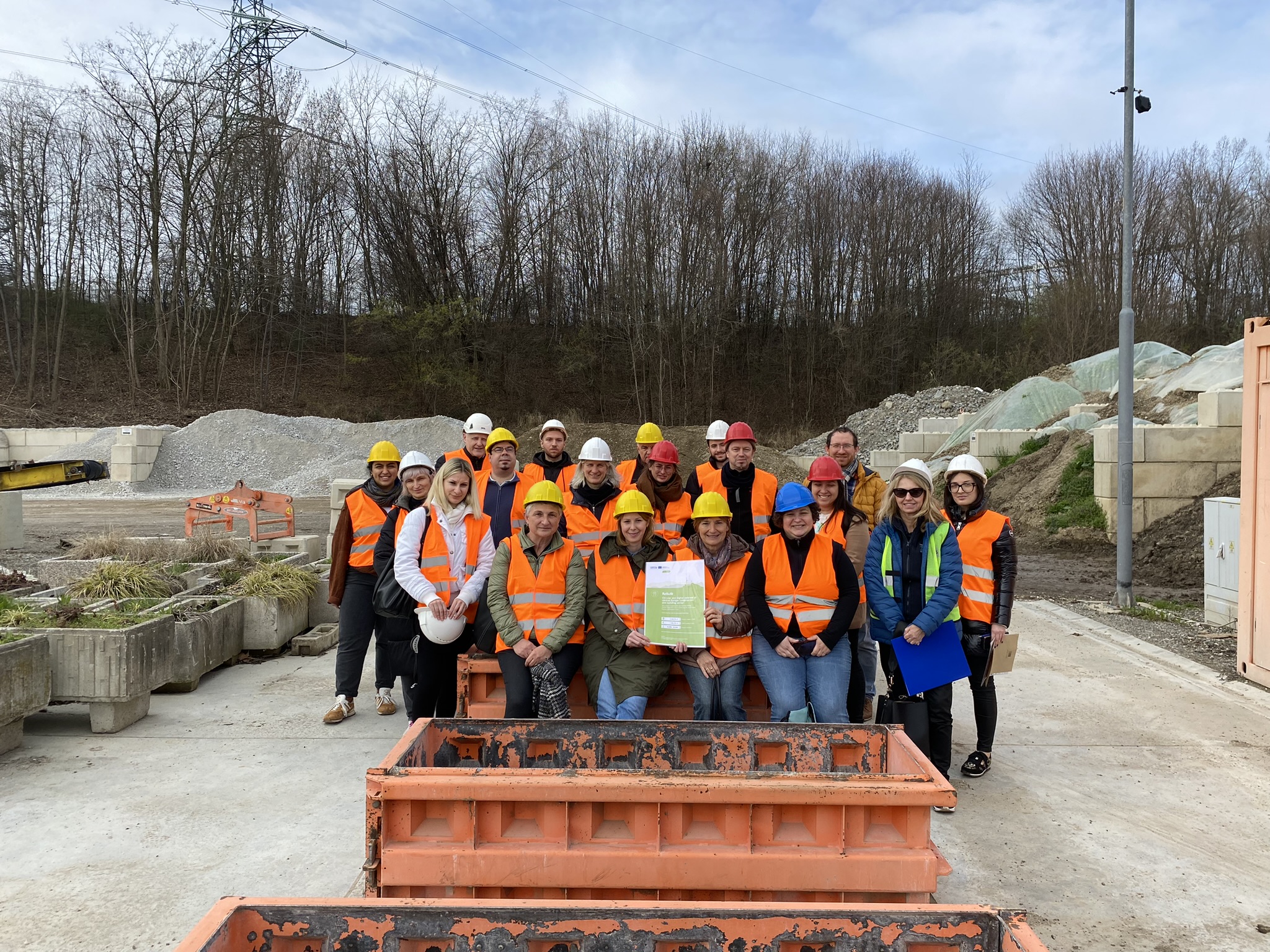The construction sector consumes 50% of all mined raw materials in Europe, and by 2060, the demand for rock raw materials suitable for construction (aggregates, limestone for cements) will increase the most of all raw materials to 55 gigatonnes of global consumption.
What is the solution? Circular construction (reuse, use of secondary raw materials, re-use of construction and other processes according to R-hierarchies), supported by digitalisation.
The conference, organised in the framework of the Interreg Central Europe #ReBuilt project, presented some excellent circular construction practices and digital tools (e.g. Digital’s Product Passport, Digital’s Construction Logs, Circular Construction Platforms, etc.) and the innovation ecosystem created by companies, research and academic institutions and local/regional/national communities. TU Wien presented the first outcomes results on the specific needs of each stakeholder group in order to enable circular economy in educational programmes. In a final workshop moderated by Hochschule München and TU Wien, solutions were discussed.
The ReBuilt partners took part in an expert excursion to the Nigrad Construction Waste Reuse Centre(Maribor, Slovenia), where they demonstrated the process from recycling old concrete to building house from recycled materials. The Dogoše site, part of Nigrad, was built in 2020 as part of the Cinderela Horizon project. As part of the project, a house was built using secondary raw materials, mainly recycled concrete blocks. They also built a road made of secondary raw materials, an embankment also made of recycled asphalt and much more. The site has been upgraded as part of the Life IP Restart project, where a material bank has been set up to store public property that has already been used by the City of Maribor and will be reused in future projects. They are also in the process of establishing a land investment bank, which will serve both municipal projects and all the inhabitants of the City of Maribor. They will continue to develop the site as part of the Re-Built project, where they will test panels made of hempcrete.
